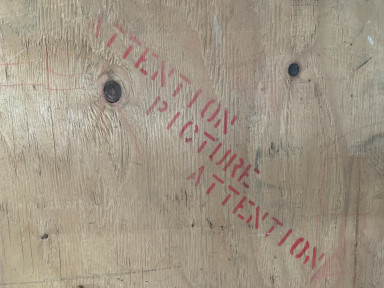

Stephan
Zilkens
,
Zilkens' News Blog 27 2024
Europe is taking a summer break – but not before a few more balls have been kicked and crowds have been thrilled. Switzerland, Spain and Germany have already made it to the quarter-finals, Austria will soon follow suit and England has also made it, albeit in a way that should encourage us to think about introducing sportsmanship marks into the game, along the lines of: goals scored in added time only count if sporting excellence and finesse have been demonstrated beforehand.
But we are on this earth for the arts, and the only thing that can be said about them in the light of the changing political situation is that they have always been political. They support the ruling powers or criticise them. They are threatened with suppression when the ruling powers argue more with the "healthy public sentiment" and only use mirrors to enjoy their own vanity. Will that be the case in France now? The first projections suggest that it will, and the same applies to the USA, where age-related stubbornness is pitted against age-related narcissism. In Germany and Austria, too, it is likely to become more difficult to promote alternative, free artistic expression.
At 51 Jägerstrasse in Berlin stands the house that once housed the Mendelssohn family bank and is now the only remaining building that provides information about the family and a rented home for the association dedicated to researching the family history. The building has recently been acquired by a new owner, Union Invest, which may have paid too much for the building and now wants to quickly increase the rent by 40%. In three years, that's more than 150,000 euros that the Mendelssohn Society, which is largely privately funded, would have to come up with. The Raiffeisen and Volksbanken and the RuV insurance group, which belongs to them, use the services of Union Invest, which ultimately belongs to the association, to pamper their customers and members with profitable fund investments. Actually, one could also be more restrained and give the tenants of the rooms in which Nordstern Versicherungen was founded in 1866, from which the first professional art insurer emerged, opportunities without damaging the interests of investors. But the management is probably still a long way from the social commitment of large corporations. RuV, on the other hand, is supporting the newly built private museum of the collector Ernst in Wiesbaden. Perhaps the Verbundgesellschaft could be persuaded to take on board the message that cultural commitment does not do any harm!
What do Boros, Brandhorst, Plattner, Stoschek, Weishaupt and Würth have in common? They are the German representatives on Art News' TOP 200 Collectors List 2023. The remaining 195 are spread across the USA, the UK, China, France and Switzerland. The choice of countries alone casts doubt on the quality of the list. There are many other countries with excellent collectors and patrons of the arts.
Stefan Kobel is starting his half-yearly review today – it's a bit longer, so it's perfect holiday reading...
Stephan Zilkens and the team at Zilkens Fine Art Insurance Broker GmbH in Cologne and Solothurn
automatically translated